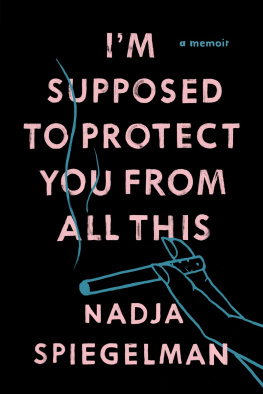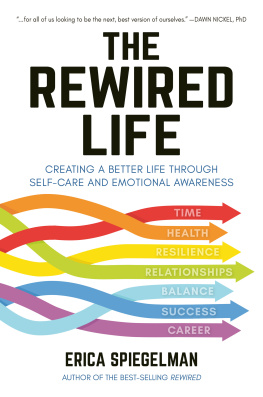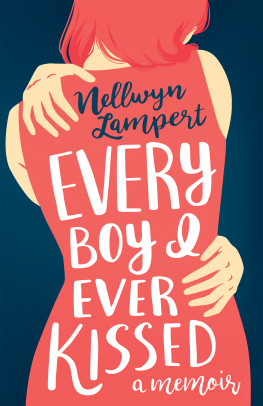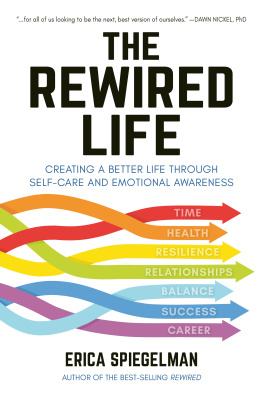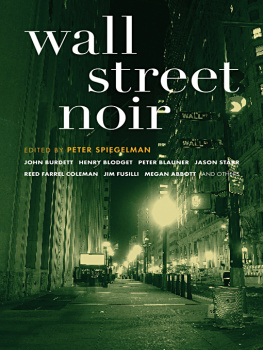Nadja Spiegelman - Im Supposed to Protect You From All This: A Memoir
Here you can read online Nadja Spiegelman - Im Supposed to Protect You From All This: A Memoir full text of the book (entire story) in english for free. Download pdf and epub, get meaning, cover and reviews about this ebook. year: 2016, publisher: Text Publishing, genre: Non-fiction. Description of the work, (preface) as well as reviews are available. Best literature library LitArk.com created for fans of good reading and offers a wide selection of genres:
Romance novel
Science fiction
Adventure
Detective
Science
History
Home and family
Prose
Art
Politics
Computer
Non-fiction
Religion
Business
Children
Humor
Choose a favorite category and find really read worthwhile books. Enjoy immersion in the world of imagination, feel the emotions of the characters or learn something new for yourself, make an fascinating discovery.
- Book:Im Supposed to Protect You From All This: A Memoir
- Author:
- Publisher:Text Publishing
- Genre:
- Year:2016
- Rating:5 / 5
- Favourites:Add to favourites
- Your mark:
- 100
- 1
- 2
- 3
- 4
- 5
Im Supposed to Protect You From All This: A Memoir: summary, description and annotation
We offer to read an annotation, description, summary or preface (depends on what the author of the book "Im Supposed to Protect You From All This: A Memoir" wrote himself). If you haven't found the necessary information about the book — write in the comments, we will try to find it.
Im Supposed to Protect You From All This: A Memoir — read online for free the complete book (whole text) full work
Below is the text of the book, divided by pages. System saving the place of the last page read, allows you to conveniently read the book "Im Supposed to Protect You From All This: A Memoir" online for free, without having to search again every time where you left off. Put a bookmark, and you can go to the page where you finished reading at any time.
Font size:
Interval:
Bookmark:

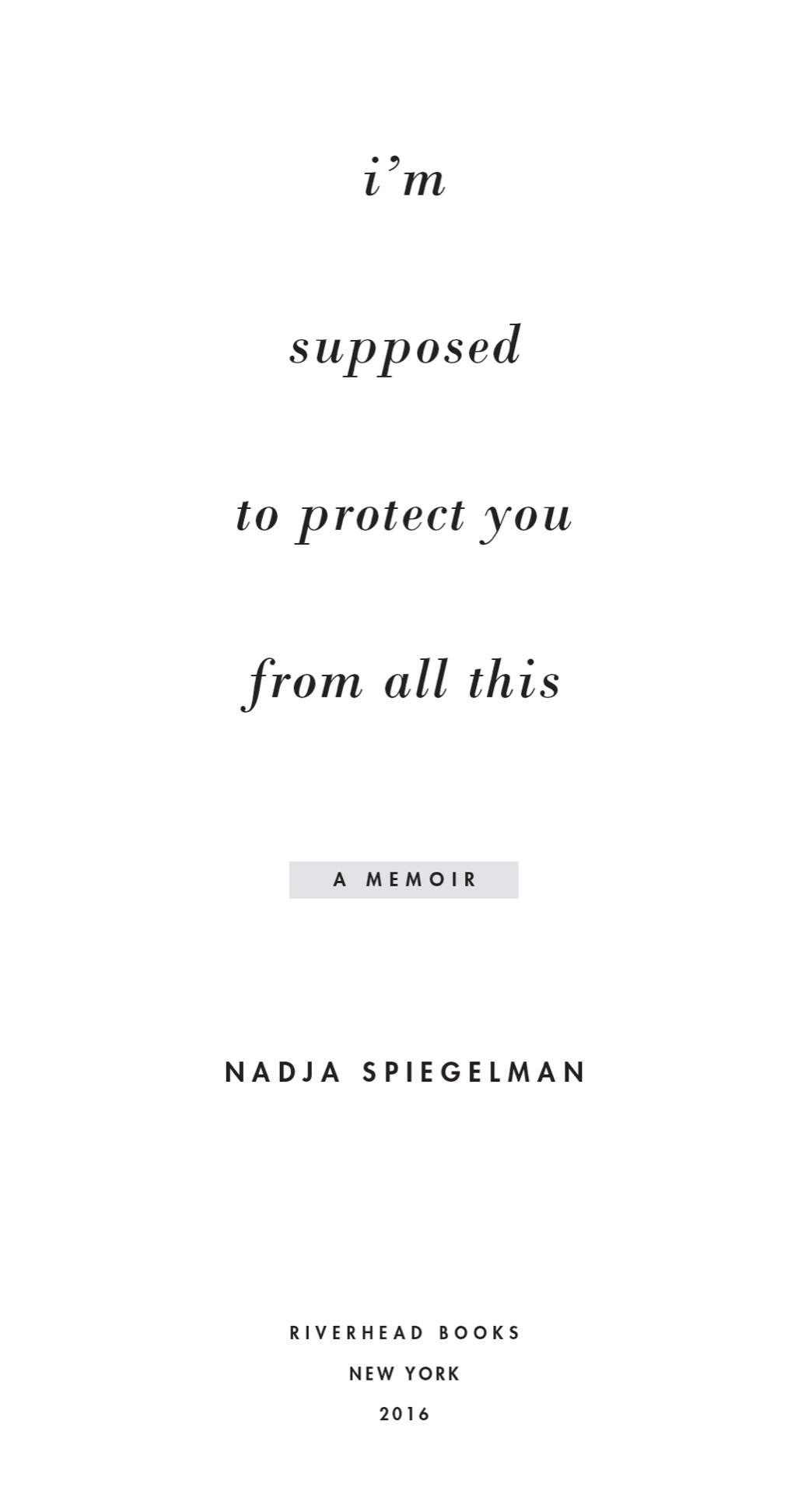

RIVERHEAD BOOKS
An imprint of Penguin Random House LLC
375 Hudson Street
New York, New York 10014

Copyright 2016 by Nadja Spiegelman
Penguin supports copyright. Copyright fuels creativity, encourages diverse voices, promotes free speech, and creates a vibrant culture. Thank you for buying an authorized edition of this book and for complying with copyright laws by not reproducing, scanning, or distributing any part of it in any form without permission. You are supporting writers and allowing Penguin to continue to publish books for every reader.
eBook ISBN 9781101627754
Most names in this memoir are changed. I have tried, to the best of my ability, to accurately portray other peoples memories as they were presented to me. But in the act of turning their lives into narrative, the necessary editorial choices were my own. This work reflects my personal understanding of a complex, shared, and subjective past.
Penguin is committed to publishing works of quality and integrity. In that spirit, we are proud to offer this book to our readers; however, the story, the experiences, and the words are the authors alone.
Version_1
For my grandmother
and
for my mother
La mmoire ne nous servirait rien si elle ft rigoureusement fidle.
PAUL VALRY
W hen I was a child, I knew that my mother was a fairy. Not the kind of fairy with gauzy wings and a magic wand, but one with a thrift-store fur coat and ink-stained fingers. There was nothing she couldnt do. On weekends, she put on safety goggles, grabbed a jigsaw, and remade the cabinets in her bedroom. She ran a hose from her bathroom to the roof to fill my inflatable pool. She helped me build a diorama of the rain forest, carving perfect cardboard birds of paradise with her X-Acto blade.
Maman, I asked her when I was four, when will I be a fairy like you?
When youre sixteen, she replied. And so I waited, and I watched her.
O NCE , DURI NG A THUNDERSTORM in Brazil, my mother pulled the rental car over to the side of the highway by a dark, deserted beach. She beckoned to my brother and me. We uncurled from the backseat and leapt out into the electric rain. We followed her, leaving my father shouting her name from the road, his voice barely carrying over the storm. We stripped down to our underwear. My mother held out her hands, one for each of us, and we ran straight into the water. The ocean picked us up and slammed us down against the sand. We screamed with laughter. We ran back in. The sky fractured with lightning, opened, fell into the ocean. The waves reared twice as tall as my mother.
At the car, my father was pale, his voice quiet with awe and anger. Jesus, Franoise, he said, shaking his head. We were late now, as usual, and my mother drove the car fast down the highway toward the pitch-black sky. Though we had been in two accidents, I did not know my mother was a reckless driver until I was in my twenties, when friends told me so. The things my mother did not see about herself, I did not see, either. We fell asleep in the backseat, my brother and I, mouths open, gritty with salt and sand, our hair drying in wild curls.
My mother disdained most dangers as American constructs, invented by timid women who washed their vegetables. She was always certain that nothing would go wrong. No one ever told me it was dangerous to swim in a lightning storm, she would say when I laughingly mentioned the memory years later. Her voice pitched defensively; she did not like to be teased.
There were other vacations, toothe vacation when my mother, sick of the other moms who complained about the lack of apple juice at the breakfast buffet, absconded from the resort and let me drive the rented stick-shift jeep along the dirt roads, even though my feet barely reached the pedals. The vacation when my mother booked no hotels in advance, just took off driving down the coast of Costa Rica, buying us all the strange fruits that they sold by the roadside. My father rarely came with us. Once, in a forest, my mother scooped the earth into her hand and put some in her mouth and ours while she explained about building immunities. We were often sick as children, and then rarely. We knew, my brother and I, that it was only fear that led to danger. My mother cast around us her conviction that we would always be safe, and it held us like a force field.
D O YOU KNOW when I finally felt free of my mother? my mother asked me. It was a story she told several times, more allegory than anecdote.
I was a baby, six months old, and shed taken me to France to meet her family. This was during the golden years, the ones Ill never remember: the years when she never put me down. She wore a big coat and me strapped underneath it. We shared a body. In the night, she woke and came to feed me before Id even opened my mouth to cry.
But on this evening, when she arrived at her friends home for a dinner party, she was instructed to leave me in the hosts bedroom. She did so reluctantly. As food was served and wineglasses refilled, I began to cry. My mother leapt up from the table.
Leave her, the French friend said. The noise doesnt bother us. My mother continued to move toward the door.
Shell never learn to stop crying if you pick her up each time, the friend said with the tone of absolute authority the French often invoke when imparting wisdom. Youll catch a cold if you go out with wet hair, bread is more caloric when its underbaked, youll never sleep if you drink ginger tea in the evening.
My mother hesitated, then sat back down. My wails grew louder.
Shell tire herself out, another friend declared. But my mother had already left the table again and gone to take me into her arms. As she soothed me, rocking me, pressing me to her body, she heard fragments of the chorus of disapproval from the other room. Now, the baby... When my child... Shes just got to... It will only encourage her...
This is what it would be like, my mother thought as I quieted against her. This is what it would be, if I raised her here. Everything would happen all over again.
She thought of her loft in Manhattan, with its high industrial ceilings. She thought of the streets where we were invisible, she and I, in the jostling Chinatown crowds. And she knew she was free.
I realized that I could reinvent motherhood, she told me now. I was so far from all this in America. I had no blueprint, no rules. And so I invented it. Every piece. I had no idea what I was doing. But I knew that it was going to be different.
Now, now that I knew her past, I saw both. I saw all the ways in which she worked to be a very different mother from her own. And I also saw how much the past, so long kept secret, pulled us into formations like a deep ocean current, from so far below that we barely knew we were not moving on our own.
M Y MOT HER RAN AWAY from Paris to New York City when she was eighteen. My family had always lived in the SoHo loft she moved into her first year in America, in 1974. I tried to recognize the space as it was in the old photos. It was a jumble then, crowded with furniture shed hauled up from the street, the rooms partitioned by bookshelves and makeshift screens. Shortly after my birth, my mother created real walls and doors and staircases, leaning ladders to mezzanines and rope ladders to nowhere, trapezes carefully drilled into anchor beamsthe floor plan inside which I stored my childhood.
Font size:
Interval:
Bookmark:
Similar books «Im Supposed to Protect You From All This: A Memoir»
Look at similar books to Im Supposed to Protect You From All This: A Memoir. We have selected literature similar in name and meaning in the hope of providing readers with more options to find new, interesting, not yet read works.
Discussion, reviews of the book Im Supposed to Protect You From All This: A Memoir and just readers' own opinions. Leave your comments, write what you think about the work, its meaning or the main characters. Specify what exactly you liked and what you didn't like, and why you think so.

